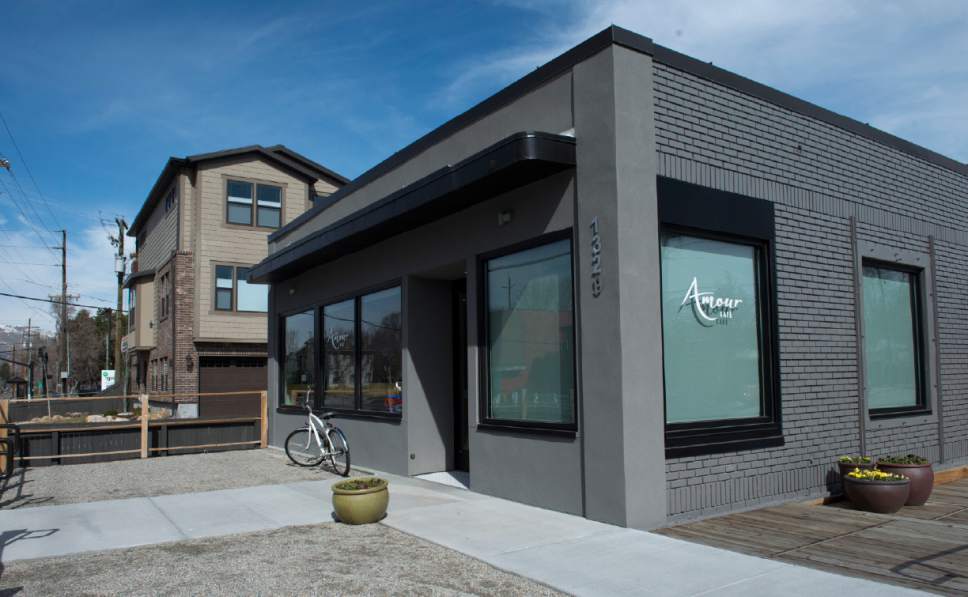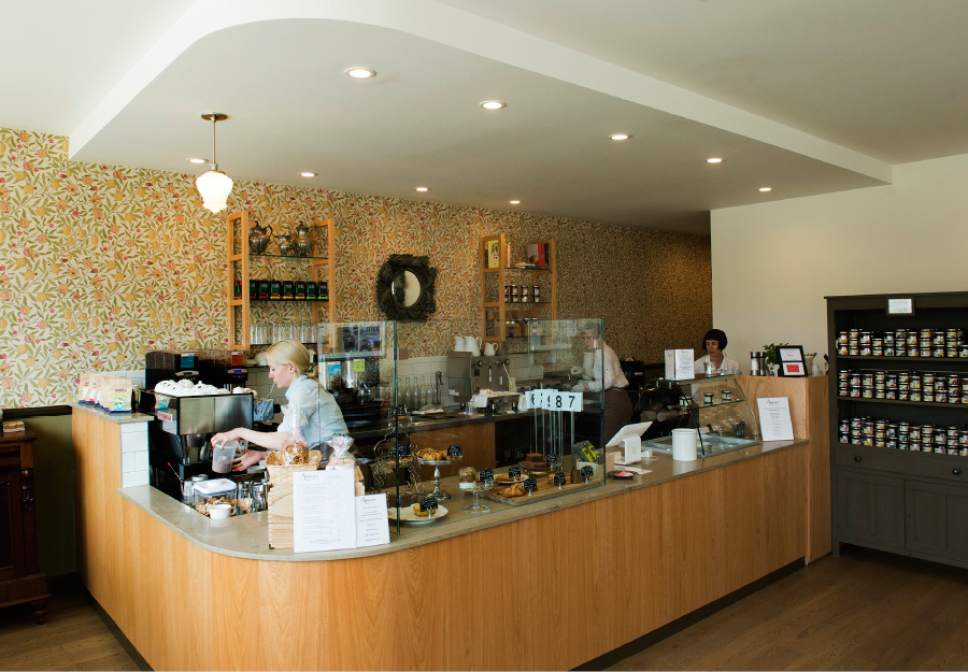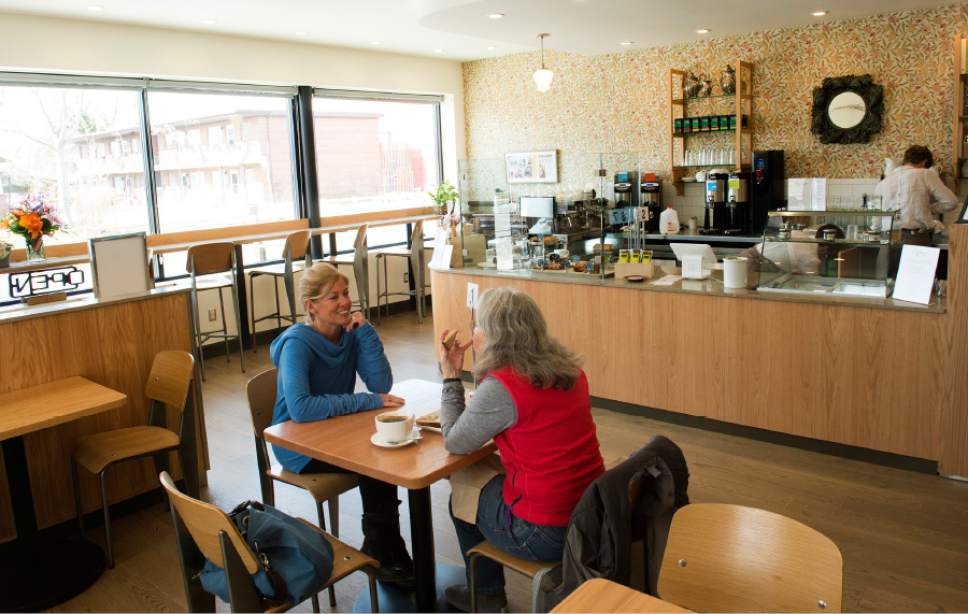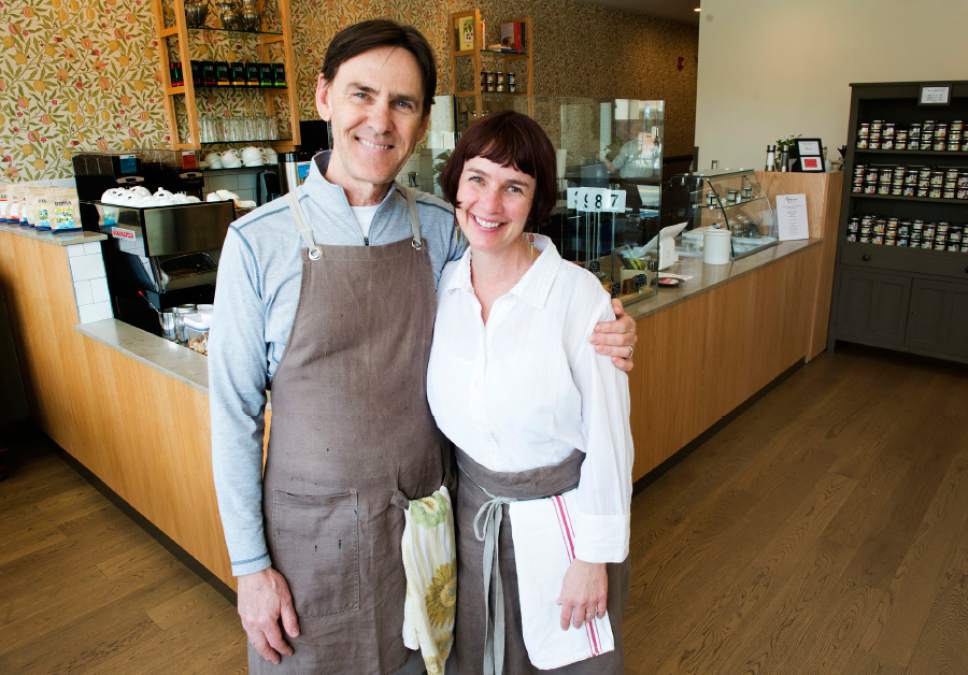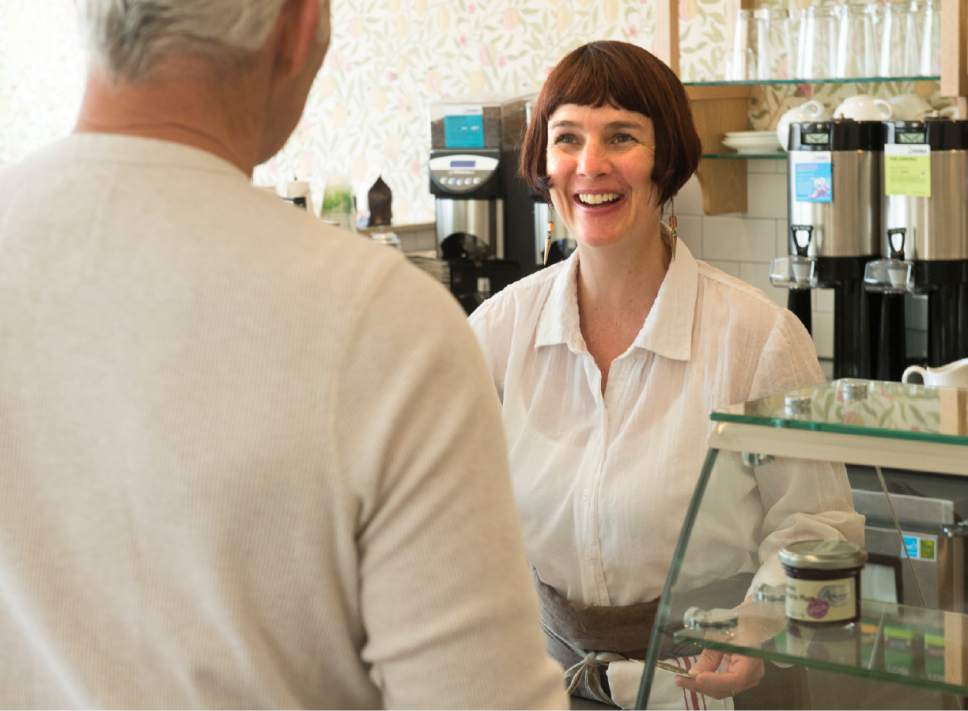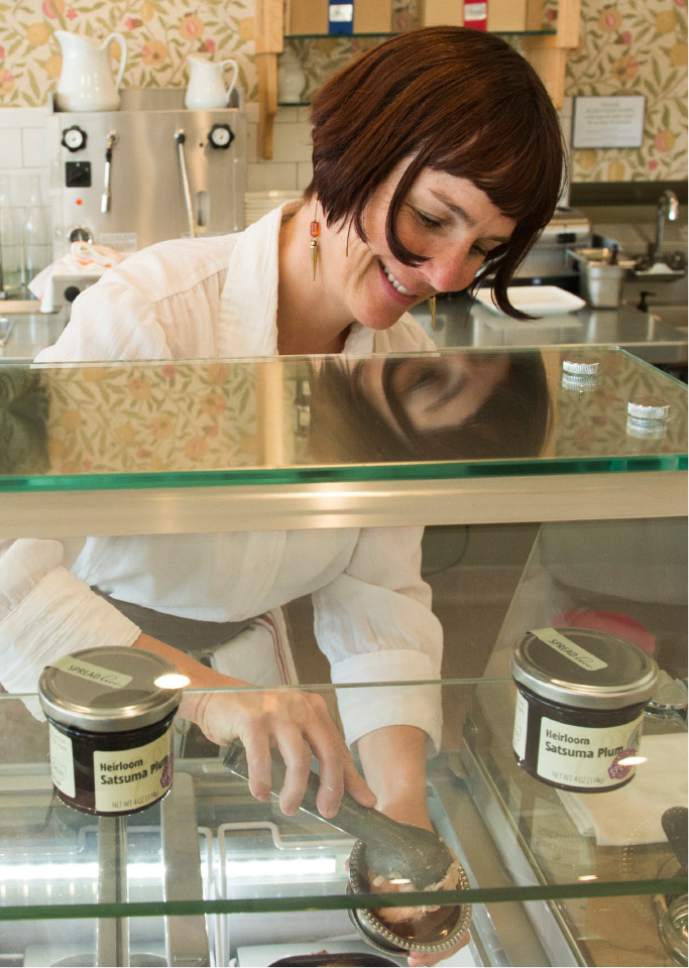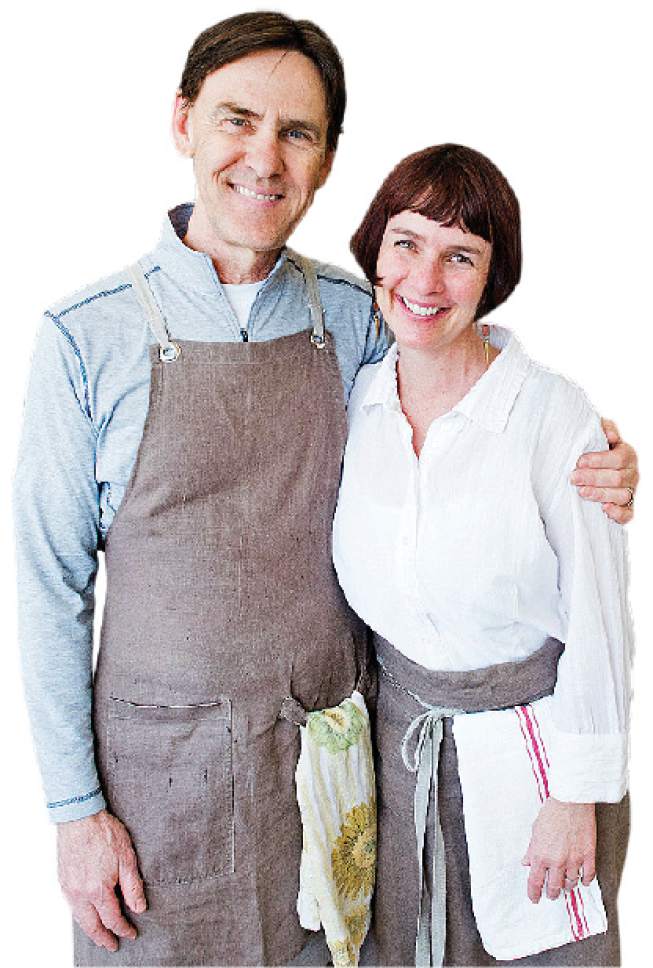This is an archived article that was published on sltrib.com in 2017, and information in the article may be outdated. It is provided only for personal research purposes and may not be reprinted.
While many restaurant and bar owners are watching HB442 because it could change the state's controversial "Zion Curtain" law, John and Casee Francis are more concerned about a proximity provision tucked inside the 144-page alcohol reform bill.
The owners of Amour Cafe, 1329 S. 500 East in Salt Lake City, say a new distance proposal would prevent liquor licensing of many restaurants like theirs, which are located near churches, parks or schools.
The proposal has far-reaching effects on commercial and real estate development, said John Francis. "It could have some pretty serious negative impacts on business."
At first glance, the change in HB442 seems to ease restrictions, allowing restaurants that serve alcohol to be located closer to communal locations such as schools, churches, parks or libraries. The bill would drop the allowable distance from 600 feet to 450 feet, and it would be measured following the shortest pedestrian route. For comparison, the large blocks in Salt Lake City are 660 feet long.
But the provision takes away the ability of the Utah Department of Alcoholic Beverage Control (DABC) to grant variances — or exceptions — to the rule.
Under HB442, restaurants and bars that currently have variances could continue to operate as long as the business remains in continuous operation, even if there is an ownership change. However, if the business closes, the variance disappears and the chance of another restaurant or bar being able to get a liquor license and serve alcohol there would be eliminated.
Amour Cafe is 350 feet from Liberty Park, and the owners want to serve wine and beer in hopes of growing their business. They were just days away, they say, from submitting variance applications to Salt Lake City and the DABC in an attempt to get a license.
Then, on Monday, HB442 was unveiled and the couple put the brakes on their license plans.
"Truth is, the city or the DABC commission could tell us no, but without the opportunity to go through the process, we don't have a chance," Casee Francis said. She has contacted Rep. Brad Wilson, R-Kaysville, the bill's sponsor, and is working with the Salt Lake Area Restaurant Association (SLARA) to bring attention to the issue, which seems to be overshadowed by the push to change the requirement for "Zion Curtains" that block sights of drink mixing.
"It's our hope that they are able to see the whole picture and how the bill affects small business," she said. "It is far reaching and, as we all know, once something is signed into law, it takes a long time to undo."
On Friday, Wilson, Gov. Gary Herbert and others were working on changes that could alleviate some of the problems that Francis and other small businesses have, said Lincoln Shurtz, a lobbyist for SLARA.
One idea being considered would differentiate between privately owned locations, specifically churches, and public locations, "with the idea that a city council or county commission would be responsible to the public and could decide the issue," he said.
Also being discussed is a plan to keep the liquor license variance tied to the property, Shurtz said. "That way, if the property was sold, the new owner would be entitled to the keep the variance."
Under current law, a business that wants to serve alcohol within 600 feet of a communal location is eligible for a variance if it gets city council approval and convinces the state liquor commission, through statistical data, that the license will satisfy an unmet demand in the area, and that there is no reasonable alternative.
Variances have been granted on a regular basis by the DABC liquor commission. In the past year, Chile Tepin, which is located near Holy Trinity Greek Orthodox Church in Salt Lake City, received a variance, as did Kimi's Chop House, which is near the Sprague Branch Library in Sugar House.
The most publicized recent variance came in June, when La Frontera in St. George, which was 384 feet from a Mormon meetinghouse, was granted a variance to serve beer and wine, but only after the owner gathered hundreds of customer signatures and collected population data that proved to the DABC that her establishment filled an unmet demand.
If HB442 were in place, the three restaurants would be unable to get liquor licenses.
The situation worries Rep. Mike McKell, R-Spanish Fork, who said during a committee hearing on the bill that the proposal could affect commercial zones where cities are often trying to lure restaurants and other redevelopment.
He pointed to downtown Spanish Fork, where there are retail shops and restaurants and a church "right in the heart of this commercial district."
"I'm concerned," he said. "It's too restrictive in tight commercial zones."
Wilson recognized the concern.
"What we are trying to do is to put distance between bars and restaurants that serve alcohol and places where kids are," he told the committee.
He acknowledged, however, that the issue needs to be discussed further.
"The bill moves us in a clear direction," he said. "But is it perfect? Probably not."
Larry Tanaka, owner of Tanaka Balance, a yoga and wellness cafe at 34 Federal Ave. in Logan, is anxious to see what happens with HB442.
He has applied for a DABC license that would allow him to sell wine and beer to customers who order the cafe's salads, soups and pastas.
The eatery falls within 600 feet of the Logan Temple and, under current law, needs a variance from the DABC.
If lawmakers approve HB442 as written, dropping the proximity figure to 450 feet, the cafe would fall outside that distance and Tanaka wouldn't need the variance.
On Tuesday, the state liquor commission paused his liquor request until its March 28 meeting, pending the bill's fate. The substitute version of the bill — with the variance issue still unresolved — passed the House on Friday.
With a few days left in the legislative session, Tanaka said he won't take chances. He plans to collect customer signatures and Cache Valley population data that prove there is an unmet need in Logan for the liquor license.
"Our clientele wants to have a glass of wine with their healthy food," he told the commission, "and we want to provide that."


